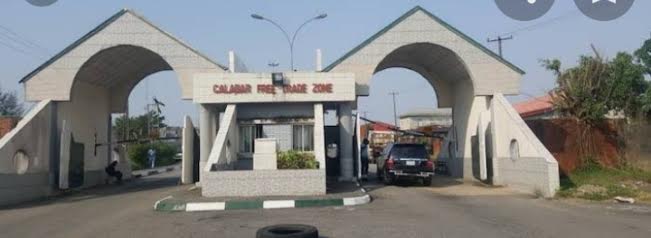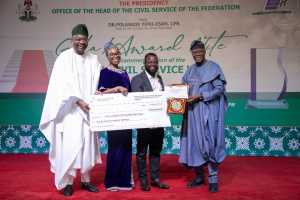
THE planned concession of the Calabar and Kano free trade zones remains the government’s best economic approach to accelerate Nigeria’s industrialization programmes, Managing Director, Nigeria Export Processing Zones Authority (NEPZA), Prof. Adesoji Adesugba has reiterated.
The NEPZA chief executive made the remark yesterday, via a webinar during a road-show event to mark the concession of the two entities in Lagos.
The event was organized by the National Council on Privatization, the Bureau of Public Enterprises (BPE), in conjunction with the Ministry of Industry, Trade and Investment as well as NEPZA, with the aim of attracting investors and sundry partners to take up the ownership of the zones.
Adesugba said the planned handshake with the would-be concessionaires would positively impact the operations of the 30-years-old public facilities for global competition.
According to him, the two zones are highly viable because of many reasons including their vital locations, easy access to raw materials, seaports, airports, outside infrastructure, labour and importantly the boisterous nature of the two commercial cities.
“The Authority is, therefore, available to support and assist the new owners to speedily surmount challenges that may come with taking up the management of this kind of business, I want to assure the private sector and particularly, companies that are set to file their bids to count themselves lucky because of the great requisite return on investment the facilities will be offering,’’ the NEPZA boss said.
A release signed by Head, NEPZA Corporate Communication Department, Martins Odeh quoted Adesugba as further explaining that the scheme offered a complete tax holiday from all Federal, State and Local Government taxes, rates, and customs duties and levies.
He said the duty-free import of capital goods, consumer goods, machinery, equipment and furniture were guaranteed, adding that the scheme also permitted 100 per cent foreign ownership of investments.
According to the NEPZA chief, the duty on exports into the customs territory is calculated on the value of originally imported component raw materials and not on the value of finished goods, the scheme encourages the opportunity to export items on Nigeria’s import prohibition list provided that it could be proved that at least 35 per cent value had been added to promote local content.
He also said that the scheme offered permission to sell 100 per cent of manufactured, assembled or imported goods into the domestic market, noting that it guaranteed 100 per cent repatriation of capital and profit.
Earlier, a Director in the zone, Mu’azu Hadi Ruma in a goodwill message disclosed that the theme: “Opportunities in the Free Zones,’’ highlighted the evolution of the free zone scheme; objectives of the zones under the regulation of NEPZA; free zones scorecards; incentives; conducive business environment; and partners of the agency, among others.
In a Keynote address, the Minister of Industry, Trade and Investment, Adeniyi Adebayo, said that the unrelenting efforts of the National Council on Privatization had made the process easy leading to the concession of the two zones seamless.
On his part, the Director-General, Bureau of Public Enterprises (BPE), Alex Okoh, stated that the concession model to be used would be that of “build, rehabilitate, operate and handover,’’ on a period yet to be specified.
Okoh further explained that the Lagos roadshow was part of the process leading to the final concession of the two facilities by December.








